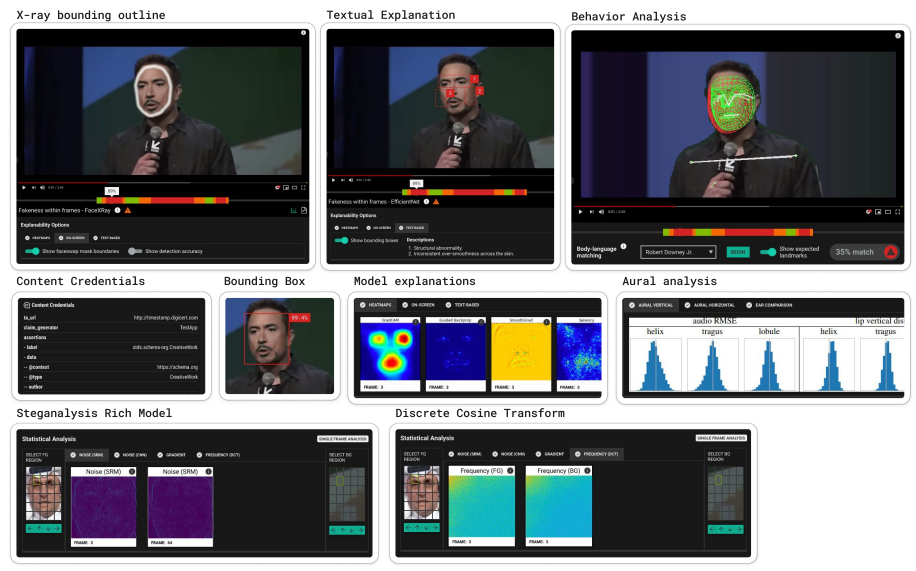When 'Free Speech' Sounds More Like Silence
National Science Foundation grant funding cuts of more than 1,400 research programs include one designed to detect AI-generated videos at the Rochester Institute of Technology in New York.
The Integrity Project
The Independent and other media outlets have recently reported on the Trump administration’s cuts of over $1 billion in federal research grants, with a significant portion targeting programs that studied misinformation—particularly those examining how falsehoods spread online and the role of social media in amplifying them.
The justification, according to administration officials, was rooted in Executive Order 14149, issued in January, which declared its intent to “restore free speech and end federal censorship.” However, the defunding of research that merely seeks to understand the mechanics of misinformation raises questions about how “free speech” is being interpreted and applied—and whether the administration’s actions reflect the very censorship it claims to oppose.
This policy shift is not an isolated case. It is part of a broader pattern of moves that suggest a more selective interpretation of free expression. While the executive order frames itself as a defense of First Amendment rights, many of the administration’s decisions—from canceling scientific research to silencing government-funded media and withholding support from organizations based on political disagreement—have arguably worked to restrict, rather than expand, the open exchange of ideas.
Defunding Misinformation Research
Programs that explore how misinformation spreads, especially through social media, have faced sweeping cuts. These include studies funded by the National Science Foundation and other federal agencies. According to Science magazine and AP News, more than 400 grants were canceled, many of which involved projects related to misinformation, artificial intelligence ethics, and diversity, equity, and inclusion (DEI). These areas were deemed by the administration as ideologically biased or inconsistent with its agenda.
While the executive order emphasized transparency and protecting speech from governmental interference, critics argue that defunding entire fields of study inhibits the public’s ability to understand the role of disinformation in shaping public opinion, elections, or public health outcomes. As misinformation continues to proliferate online, many scientists worry that such cuts will leave the country less equipped to combat false narratives and foreign propaganda.
Voice of America and the Shift Toward State-Sponsored Messaging
The administration’s treatment of Voice of America (VOA), a federally funded international broadcaster, offers another telling example. Initially sidelined and criticized by President Trump as "anti-American" and hostile to his agenda, VOA underwent a dramatic transformation in early 2025. Following an executive order from President Trump, approximately 1,300 VOA employees were placed on indefinite paid leave, effectively halting the broadcaster's operations. The sudden suspension of staff and cessation of broadcasts led to legal challenges from employees and press advocacy groups, citing violations of the VOA's congressional mandate to provide unbiased news coverage.
After the Trump-appointed Broadcasting Board of Governors was restructured, Kari Lake—a former gubernatorial candidate and prominent Trump ally—was appointed to lead the U.S. Agency for Global Media, which oversees VOA. Amidst the realities of its current operational standstill, Lake announced a partnership with One America News Network (OAN), a far-right media outlet known for its unwavering support of President Trump and promotion of conspiracy theories. Under this arrangement, OAN would supply news content for VOA's foreign audiences at no cost to taxpayers. Lake justified the decision as a cost-saving measure and a means to provide "reliable and credible" reporting.
Several of the longtime journalists and international correspondents who had remained have now either resigned or been reassigned, citing editorial interference and pressure to produce more favorable coverage. What was once an institution promoting objective reporting abroad is now, critics argue, functioning as a mouthpiece for the administration, blurring the line between public broadcasting and state-sponsored propaganda.
Legal Action Against Institutions and Organizations
The administration’s push against dissenting voices has extended to the legal realm. In one high-profile example, the Department of Justice attempted to cancel $3.2 million in grants to the American Bar Association (ABA), which were intended to train lawyers assisting victims of domestic and sexual violence. The DOJ argued that the ABA had engaged in speech inconsistent with the administration's values. However, a federal judge temporarily blocked this action, noting that the cancellation likely violated the First Amendment by penalizing protected speech.
This pattern—defunding or penalizing organizations and programs not for illegal activity, but for perceived ideological misalignment—underscores a broader concern: the administration appears to be using the banner of free speech to suppress inconvenient or oppositional perspectives.
A Selective Definition of Free Speech
The central tension in these actions lies in the administration’s selective application of the principle of free speech. By framing any critique, scientific finding, or journalistic inquiry as biased or hostile, the government effectively narrows the range of acceptable discourse. This has profound implications not only for academic freedom and press independence, but also for the democratic principle that truth emerges from a diversity of perspectives and rigorous public debate.
While the First Amendment protects citizens from government suppression of speech, it does not guarantee government funding for all viewpoints. However, the strategic withdrawal of support from specific research areas, media outlets, and nonprofit organizations raises alarms when it appears aimed not at cost-cutting or program efficiency, but at silencing dissent.
The result is a shrinking of the public sphere at a time when robust, evidence-based discourse is more critical than ever. If the goal is truly to protect free speech, then policies must also protect the institutions and inquiries that sustain it—even, and especially, when they are inconvenient.
READ ADDITIONAL COVERAGE FROM INDEPENDENT NEWS (UK)
ADDITIONAL NEWS FROM THE INTEGRITY PROJECT




